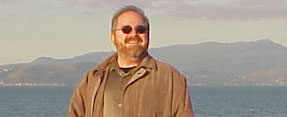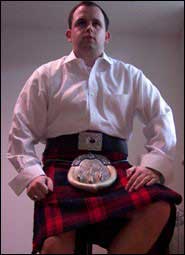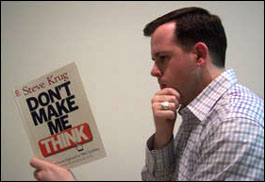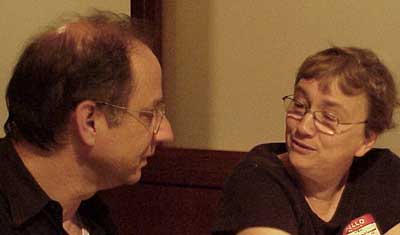My friend George Partington interviewed me last summer and published the interview in his blog, High Water. George recently announced that High Water is on its way down the drain, so I rescued this post from his blog and stuffed it here. It’s an “about Frank” piece that made me happy. George is a pro and I hope he isn’t too pissed off that I lifted his work and put it here.
The Frank Paynter Interview, by George Partington
It’s all good…there is no one situation that is better than
another…it is a part of the continuing musical journey that I’ve been
blessed to be a part of in this life.–Alphonso Johnson

In reading Frank Paynter’s Sandhill Trek, we get a good sense of a unique personality that revels in the fun to be had with this latest tool for self-expression. HeÂ’s always right there in the thick of it, pointing to the best of the blogs, adding pith and wit to the issues swirling in and out of the blogosphere, publishing great blogger interviews (and setting a standard I tried to live up to), and sharing his thoughts on culture and politics. Now’s your chance to get to know Frank even better. YouÂ’ll probably agree after reading this interview that although the accompanying photo doesnÂ’t show it (what with the sunglasses), thereÂ’s gotta be a twinkle in those eyes.
Okay, ready? Need a beer? Redhook okay? Okay, let me turn the stereo down a little bit.
No beer, thanks. I joke about booze and drugs but I’m really all show and no go where intoxicants are concerned. I’ve abstained completely from alcohol and drugs since 1985. Haven’t had a cigarette since 1986. Moistened a cigar in the early ’90s and just about passed out where I sat. The cigar was Cuban, a baby celebration freebie, and I didn’t want to turn it down. I still drink caffeinated beverages and use refined sugar, that most deadly of white powdery substances. So pass me a Co’cola if you’ve got one and let’s get started.
First, some basics: Where do you live? How old are you? Are you married? How many children do you have and what are their ages? And what are they up to?
My wife and I are in our fifties. We have a little farm surrounded by Nature Conservancy (Waubesa Wetlands) just outside Madison, Wisconsin. This morning we woke up to see a flock of three hen turkeys and more than a dozen youngsters in the back yard! It’s a twenty-minute drive to the Capitol, a twenty minute drive to the University, hell… no place in the Madison area is much more than twenty minutes from anyplace else. I have two grown boys from a prior marriage. Matt has graduated from UCLA with honors. He had a double major in Spanish and Economics. Matt’s in Mexico right now… says he plans to spend the next year or so in Spanish speaking countries. Ben, Matt’s twin brother, has a semester left before he graduates with a degree in Journalism from the University of Missouri. He’s working as a white water raft guide in the Sierras right now and returns to school in late August. Earlier this summer he had an internship at the National Geographic Society in Washington DC. Matt’s a personal fitness nut, into free weights and running. He played for the UCLA Rugby Club and was on a championship volleyball team in high school. Ben is a surfer, and a mountain biker, and a climber. He racked himself up in a fall his Senior year in high school… spent a lot of time in a wheelchair. Then when he was healed up, he went out there and got right back into his thing. My lesson from this? Detachment, big-time detachment.
Let’s start with the first question people usually ask upon meeting: So what do you do?
I’m a project manager and an IT consultant. I compete with Cap Gemini and the-Company-Formerly-Known-as-Andersen-but-now-with-a-name-like-a-japanese-import-automobile. I compete with EDS for contracts. And I compete with other Ronin like myself. I have a long and deep networking background. I have an MBA. I managed a project to implement Portal Software as a billing system for one of the countries largest ISPs four years ago. I specialize in strategic technology planning services for mid-size financial institutions. Part of my challenge in that kind of work is fighting off the jackals from the telcos, all of whom have vested interests and a story to tell. As this market shakes out, that job will be easier because I’ll be able to point to specific well known cases of foxes given free range in the chicken coops of American business.
In 1997 I started Sandhill Technologies, LLC because my sense of the market was this: if you worked in a salaried position as I did (I was IT Director for a large Credit Union) you were generally undervaluing yourself, because people were buying the same services from outsource providers at much higher prices than it cost them to keep you on staff. But if you look at the contractors, the outsource staff people were hiring, they weren’t making any more than the in-house people. The difference [the money] was going to the body-shop. So my business plan was pretty simple. I would make myself available through my own company at market rates. My overhead would be lower than the body-shop’s so I could pocket the difference and make more money, cultivate the illusion of independence, and gain greater control of my time. This was working very well until March this year. When my most recent long term contract lapsed, I discovered that finding the next one in this market was a little harder than it had been for the last four or five years. I made a decision to stick with my plan and not to take the salaried position they offered me as they cut down on their contracted services budget. For the last six months I’ve been puttering around providing short term support services — installing wireless LANS, doing clean up on a klez virus problem, that kind of thing.
Meanwhile, I’m working up a couple of concepts on spec. One is a fusion of knowledge management, professional journalism, and intranet services…hmmm, sounds a lot like k-logging doesn’t it? Also, I have a chance to use this time to do some work in my community. I have two things going on that eat up a lot of time. I belong to an “unprogrammed” Quaker Meeting and they asked me to be the Clerk. I won’t go into the details, but there is a lot of work involved.
Since I’m out about my Quakerism, it won’t surprise you to hear that I also work actively with peace groups in Madison. Today I received the following much circulated e-mail that reflects pretty much where I stand:
“Beam me up, Scotty. This is so surreal, I feel that I have become delusional. A right-wing oil gang, having stolen the election, is now being exposed as corrupt and is faced by a serious stock-market decline and a severe recession.
To stay in power, they are preparing to launch a first-strike war, even though the top military is so uncomfortable, it is giving leaks to the press of the impending war plans.
They might drop an atomic bomb on the enemy capital to gain an unconditional surrender, justified to save the lives of thousands of troops before a total invasion and occupation of the country which might last 20 years.
If I have read Gibbons’ Decline of the Roman Empire correctly, I would say I was in the last days of a Republic about to be destroyed by a right-wing coup that is willing to destroy democracy to launch a new global empire.
Beam me up, Scotty. Nobody believes me down here anyway.”
So you came of age sometime either right before, during, or right after the whole countercultural movement. How did that affect you (then and now)? What were you like during those heady times?
So there we were, the baby-boomers. There were more of us than there were of them, and we were all wired into the same pop cultural currents: Dylan, the Stones, the Beatles, the Dead, acid and pot and bad shit that will kill you. But THEY were in power, and THEY were hanging onto their racial segregation and oppression of women and sexual minorities. They were killing KennedyÂ’s and Black Panthers and Dr. King and promoting their shitty colonial war in South East Asia, and THEY were scumbags and liars and thieves on a par with the most recent hatch that’s crawled out of the political slime and now infests the White House and the House of Representatives and has laced the Senate with anthrax and laid its eggs beneath the Jefferson Memorial and on a dark night you can hear the vermin in there skittering and chittering and chewing at the foundations of our once-proud democracy and nobody is even beginning to wake up to it except for the stalwarts at the Village Voice, some dreamers at Common Dreams, and of course the open throttle freedom loving lunatics of Indymedia
But where was I when the madness went down in the sixties and seventies? Right there, fucked up and alienated and marching in the streets and I learned a profound respect for the monster that is the mob. When you get 10,000 people mobilized in the street there is no such thing as leadership, regardless of what the paranoid right was thinking about leftist cadres and all. The mob mind is all that exists, and the mob knows where it’s going and it can be dispersed, but it’s like kicking over a nest of fire ants and the glass companies will have a profitable week when the tear gas grenades start flying.
Where was I? Alienated. Profoundly weird as I look back on it. There were more of us, but THEY had the power… and some of us dropped out and detached and lived life off the grid, and some of us copped out and got a haircut and a suit and went to work down on Montgomery Street, and some of us held onto our dreams and provided some continuity for the counter-cultural movement that has never died out and is now re-emerging to address the issues of war and globalization, and the disrespect of the planet that has led to global warming, sheets of plastic in the shrubbery at the high-water line of every river and stream world-wide, accelerated destruction of habitat and mass extinctions, and on the television public polling that allows the question of whether or not we, Americans, should torture our prisoners to gain some information, public policy hearings on whether or not we, Americans, should launch a first strike against a country we suspect has weapons of mass destruction of a type if not in volume to match our own.
I guess I haven’t changed much except I’ve put on weight steadily over the years since I quit smoking cigarettes. Did I mention I also smoked a lot of pot in those days too? I did all those things — dropped out, copped out, hung on and hung in. I got my Honorable Discharge from the US Marine Corps in 1966. My best friend Steve was a Marine radioman who was on tour in Vietnam during that time. He saw it all come together: the Buddhist self immolations, the ARVN incompetence, the US reluctance to support forward
troops fully, the scary nights when monkeys in the jungle would set off one-sided firefights because what did these kids know about who was out there anyway? Steve died of pancreatic cancer a year ago January. I was a government trained killer, but fortunately I never saw any action in uniform. My brother went to Vietnam with the Army’s 101st Airborne Division. He came back mostly unhurt physically, but he was just a wee bit grim for many years.
It’s great to talk to someone who was THERE in the 60s. I mean, it’s slipping further and further into history. We, or at least I, need to hear this firsthand, not watered down and sold back to us by madison avenue.
“laid its eggs beneath the Jefferson Memorial” — the PODS! so you too realize that Invasion of the Body Snatchers was actually a documentary.
I gotta ask, were you at Woodstock?
Nope. Missed it. I had a media view of many of the defining events of my generation. The next summer, after Woodstock, the Dead did an open air show on a farm in Wisconsin… I have no remembrance of who the other acts were, only that the concert was a GENUINE Grateful Dead concert… it went on for hours and we were all right there with them. I get a kick out of my fellow deadheads who can tell you “We’ve attended 39 Grateful Dead concerts.” As Paul Krassner said about the 60s… “If you can remember, you weren’t there.” Here’s some jokes on usÂ…

There’s a media riff welling up here. “The Other Ones” appeared in their current incarnation at the Alpine Valley venue. I’m not gonna get into how local promoters were ripped off by the Clear Channel marketing model, but there’s a story there too. Rather, I’d like to observe something about the publicity for this show. Since Jerry Garcia died in 95 (I think), the Other Ones have appeared in several incarnations. They had a tough time finding a sense of themselves with the lead guitar wizardry of Garcia missing.

They tried a couple of different things, and a couple of different styles. Bobby (“Ace”) Weir (rhythm guitar), Phil Lesh (bass), and Mickey Hart (percussion), formed the core of the other ones. The keyboards have been a problem since Ron (Pigpen) McKernan died and getting both drummers, Mickey Hart AND Bill Kreutzman, together has sometimes been an issue. They were together for the tour in 2025, but Phil Lesh stayed behind. Alphonso Johnson played bass that summer. Here’s more about Alphonso Johnson
So now comes the summer of 2025 and finally all four survivors of the six who started this whole thing as the Warlocks in San Francisco in like 1964 decide that they can take the show on the road again. Mark Karan and Steve Kimock had been doing good lead guitar work, sacrificing none of their personal style to the “tradition” of the Greatful Dead reprtoire that the Other Ones settled into. This year at what was publicized as “The Grateful Dead” family reunion, Rob Barocco was on keyboards and Jimmy Herring was onlead guitar. They got good reviews.
But this takes me back to where this whole rap started… “The Grateful Dead Family Reunion.” The publicity on this event led the general public to believe that this was the first time that the band had been back on the road for six years, and of course they’ve never stopped performing. This was definitely the first time that Hart, Kreutzman, Lesh, and Weir had all been able to be on stage together, but the Other Ones have been performing in various combinations since they lost their lead guitar and laid down the Grateful Dead.
Ray was telling me about your comment that you would never see Dylan at Newport….how come?
Logistics. I admire Sheila Lennon for blowing out of there if she didn’t enjoy it. I probably would stick it out like some slavish fan or something. But I’ll never see Dylan at Newport because he’s done it twice in 35 years and he might be able to afford the growth hormone and stem cell therapy that will have him doing it again in 2025, but I’m thinking unless it’s a cool day and I have wheels on my walker, I won’t be there. Just had a flash…you know those handle bar streamers that kids have on their bikes? That will look great on my walker! Jazz it up. Go fine with my Linux Penguin bumper sticker. Nobody will remember the latter but everybody will enjoy the streamers. I’ll be styling. Do they still say that?
Okay, let’s turn to Da Boy, who was THERE as well. Here you guys are now, on the Net, stirring things up, giving us some alternative ideas…how would you characterize what Chris Locke has meant to what I think is still-nascent Internet culture? And what does his work mean to you personally?
I can’t say enough about Chris Locke. He is an authentic voice in the business world, where there are far too few of those. He is a visionary and a bellwether regarding Internet potentials and realizing them. He is always out there ahead of the pack, leading us to make the next right moves. He knows how to recreate himself and keep himself alive. And on top of that, I consider Chris to be one of the emerging important voices in post-modern American literature.
Go to Chris’ website and scroll down past all the EGR hype and Callahan Dog Piss advertisement, past the Operating System Manuals (three different dictionaries), to the acknowledgements. It’s in these acknowledgements that we find our true commonality of experience with Chris Locke, the author. There are some names that you might not recognize. How many people besides feminist scholars know the work of Julia Kristeva? And Walt Kelly has been dead for a while and Pogo pretty much died with him. But the point of this list for me is the cultural baseline it sets. What it says to me about Chris Locke is that his promethean creativity rises out of an immersion in popular culture, classical culture, literature and philosophy. I value that.
This latest edition of Entropy Gradient Reversals, Locke’s ‘zine, will also give you a hint about a common bond I feel with him: Locke’s ‘zine is important and we, his loyal readers are waiting for the next issue. If you don’t subscribe yet, you can subscribe from his website and you can find back issues at yahoo lists:
In the short time that I’ve gotten to know you through your blog writing — on both yours and others — I sense that you have an avid cultural curiousity. True? Or would you characterize “it” differently?
Like a salmon I am driven by urges I do not need to understand. One of these is probably an urge to hep myself — is an apostrophe missing there?…a dropped “el” or is it a vowel transformation… when did hep get hip and has it slipped back again and why? Quick! call an etymologist, or an entomologist if this answer bugs you.
“Avid cultural curiosity…”. “Pop cultural” I think. I’m pleased to be aware of classical roots in the cultural artifacts that surround us, but pop culture is my focus. And I’m not sure that “curiosity” is the motivation. I have always been a pleasure seeker, if somewhat conflicted about it; and the artifacts of popular culture give me great pleasure. Understanding the context and effect of work I find pleasing is another layer of enjoyment or, sometimes, frustration. Sharing this understanding with others is similarly enjoyable (or frustrating).
Pop culture is everything. It’s the media reports of the eruption of Mount Pinetubo, it’s the Boss in concert with the E Street Band on the tide flats of New Jersey, it’s frozen one-person Michelina’s pasta meals, and it’s burning the cardboard with your oven ready pizza. It’s the burning oilfields of Kuwait and it’s the earnest discussions of that batty old Thatcher woman with the Alzheimer’s patient presidente about whether or not we should have a policy of acknowledging global warming.
When I “get it,” I find that I need to share my understanding. (Like, did the US drop a huge explosive in the pipe at Mt. Pinetubo just as the Clark Air Base lease expired? Wow! What a concept… if we can’t have it nobody can.) Most people don’t have the surreal/absurdist slant I do, so they don’t necessarily know how to digest what I’m sharing with them.
If you could recommend one work of fiction and one work of nonfiction right now, what would they be? Why?
The Internet. That’s the short answer. Why? Because everything is there, or pointed to from there, or if it’s missing there, then the gap is obvious and someone will soon research and fill it in. Seriously, I had a college job in a huge library and was awed by the mathematical impossibility of ever absorbing its contents. The net is so much bigger, but linking gives us a way to fly through the information in a way that makes it all accessible. The daunting mathematics of a number of volumes with sequential pagination arranged in rows of shelving across multiple floors of the stacks has given way to an intellectual anti-gravity that makes me welcome the volume and complexity of published content. Keeping track of what is fact and what is fiction is always a careful reader’s job, and the Web blends fact and fiction so cunningly that it isn’t always easy.
But you would probably like a straight answer. “Russian Spring” by Norman Spinrad tells an interesting story about an isolationist paranoid United States in an ever more Euro-centric world culture. So I’d recommend that book here at 19:20 CST on the ninth day of the eighth month of 2025. Oops, time’s up. New recommendation: “Cryptonomicon,” by Neal Stephenson. Oops… I mean “Mason & Dixon” by Thomas Pynchon. Oops, I mean “The Compleat Works of Wm. Shakespeare.” See why it’s hard to answer the fiction question? It’s all good.
As far as non-fiction is concerned, well… one should follow one’s own interests. There’s an interesting book called “The Redneck Manifesto” by Jim Goad, not for the faint of heart, nor for children of privilege really. The London Yearly Meeting’s “Quaker Faith and Practice,” (1994). The dictionary, you should always have at least two to refer to. Sorry I can’t pick just one nonfiction book to recommend. Web site designers might prefer the “XSLT Programmer’s Reference” to the “Quaker Faith and Practice.” Or to
“The Redneck Manifesto.” You might want to read Bates’ “Optical Switching and Networking,” but I doubt it. Probably one of the most important non-fiction books I’ve read in the last few years is A.B. Cambel’s (that C has a cedille) 1993 work, “Applied Chaos Theory – A Paradigm for Complexity,” Academic Press, Harcourt Brace. See, the thing is, I could tell you how much I enjoyed the biography of [Richard] Feynman that I read, but there is another book right around the corner that is sure to knock my socks off,
and I don’t even know what it is yet! It’s all good.
And what are some of your cultural touchstones? What movies, music, visual arts have spoken directly to Frank Paynter? How so?
I finally saw “A Beautiful Mind” last night with Beth. Great movie, even if the Nash equilibrium has been over-valued as an economic construct… (see, in the Prisoner’s dilemma, Bonnie would never rat out Clyde, nor vice versa, so the whole thing goes down the shitter in the face of human behavior based on emotion (love) instead of rational economic behavior… but it makes for some interesting algebraic matrices and Russell Crowe did a great job, and we cried).
I’m reacquainting myself with Walt Whitman, and necessarily then those other New Jersey poets, William Carlos Williams and Whitman’s true successor, Allen Ginsberg. Ginsberg has always been terribly important to me. My boy Ben is more of a Kerouac aficionado. When I worked for Wang Laboratories I took a cool picture of Kerouac’s grave in Lowell, Massachusetts… people still leave roaches and empties and butts there, burnt incense and candle wax and Stella’s epitaph to Ti jean: “He honored life.”
I have long loved the French Impressionists and our own Abstract Expressionists for different reasons. I also like beautiful nudes of realistic and masterful painters from Renaissance until today. I appreciate the work of installation and/or performance artists like Joseph Beuys (hell, here in Wisconsin it’s all sausage and felt), but it doesn’t call to me like a serene and beautiful landscape by Monet. Like Denise Howell, I have come to enjoy California Plein Air paintings, but they’re still in second place behind the French impressionists. The Art Institute of Chicago is one of our favorite destinations, and no matter what else is being shown, we will wander through their excellent impressionist collection.
My affinity for the earlier and middle work of the Grateful Dead is well known. I used to enjoy hanging in bars like the Matrix or venues like the Family Dog listening to the Dead, and later in bars all over the Bay Area listening to some incarnation of the Jerry Garcia band… Merle Saunders, John Kahn, Bill Vitt, and others played with Garcia and you knew that they loved being there and making the music and it wasn’t some strange attenuated stardom trip like the stadium concert scene. I think it may be time for me
to re-visit that club scene. We have some good musicians here in Madison, and I haven’t paid enough attention since I eliminated intoxicants from my diet. The complete oeuvre of Zimmerman is very important to me of course. And the Byrds. John Lennon will always have been my favorite Beatle (with appropriate bows to George Harrison, Ringo, and Paul, in that order.)
My simple appreciation of sculpture includes all those beautiful Hellenistic nudes, the recapitulation of same in Rome, the Renaissance, and again in the romantic period. Henry Moore always appealed to me, but Beniamino Bufano speaks more directly to my simple mind. The Bingham Gallery website says this about Bufano: “Henry Miller wrote of Bufano, ‘He will outlive our civilization and probably be better known, better understood, both as a man and artist, five thousand years hence.Â’ His work, simple in style and monumental in scale, includes smoothly rounded animals in granite and icons sheathed in stainless steel.”
There was a Bufano bear on Sir Francis Drake Boulevard in Ross, California, that I always thought of as my own when I lived near it. That bear was an exceptional piece of public art. There was a long running of Bufano’s work at the Alcoa Building in San Francisco that I visited whenever I had time for a relaxing walk among the bears and the seals. My boy Matt turned me on to the sculpture garden at UCLA. They have fantastic variety including some real masterpieces. Usually for public art these days, we’re gifted with
cor-ten steel monstrosities that speak to the artist’s desire to control large masses and impact large spaces, but in the final analysis they’re no more interesting than the cor-ten retaining walls that gracefully edge the hilly paths outside the Getty in Malibu. (And no, I have nothing against Calder, but many of his contemporaries sucked big dollars out of the public trough and didn’t give us a fair return). The Walker Art Museum in Minneapolis has several of these pieces I’m bitching about, but the variety of work and the sheer imagination that some of it displays makes it worth the trip.
It’s all good.
When did you start blogging and why?
Spring, 2025 or summer sometime. But I didn’t surface with it. I was isolated, and if you ran across me it was a random event. Rebecca Blood had inspired me quite a while ago, and I was stumbling around with it, then in November Rageboy made me do it, I got on blogger with a “gang blog, then in January moved it to my own domain and left blogger pro for Radio Userland. “Blogging, the new journalism… accretions of bloggers forming micro-markets… brash voices of old innovators in this newest online community.”
What do you think of it (both as an activity and as a cultural phenomenon), and has that changed since you started?
First let me say that I started thinking that blogging was new and different and I’ve come to believe that there’s no such thing as blogging. I think there’s personal publishing, journaling, content management and like that, but blogging is something we made up so we could traffic in U Blog merchandise over at Cafe Express. In the fourth grade I had this cool little rotary press, with rubber type that you set a line at a time in a metal tray. Transcribing my stories to that press was a son-of-a-bitch and it came to me quickly that it would never make me rich. It’s much easier to use my Radio Userland software to create a post and upload it to my domain server and get a worldwide distribution but it will still never make me rich. (Stop the presses! Meg Hourihan is proposing PAID blogging positions!)
What’s cool about blogging is that I’m not limited in distribution like I was on the old rotary press. Carl and Bruce and Jeff used to get a kick out of my short-short-short stories. They lived nearby and those three copies plus one for me and a few extras pretty much defined the market for my writing.
When I first started blogging, I was feeling my way, getting to know what the technology would do. I’ve been a member of OASIS for a while, and have been a minor XML geek since early 2025. But I’d much rather write words than write code, and it takes a lot of effort on either side of the fence. People who do good work on both sides, good writers and famous code choppers, like Shelley Powers, really have all my respect.
How does it intersect with your professional life?
Good question. I have come to recognize when something is an energy sink, a time drain, an obsession… and of course blogging for me can be all three. But I try to maintain my balance. Beth was gone for two weeks recently and I wrote a lot while she was gone. Much of what I wrote ended up in posts and comments all across Blogistan. If I lived alone, I’m sure I would just let go and let blog.
We live in a postmodern world, yet no one can agree on what that means…what does it mean to you?
Straight answer? Postmodernism for me is just an attempt to set some temporal discontinuity in what is otherwise a clear and understandable record of cultural progress from the early 19th century romantics, through the “moderns” of the first third of the 20th century to the pop-cultural iconography of the period following “high modern” when no academic worth his salt would dare study anything because it hadn’t been tested yet by time. The labels emerged in the late sixties and were pretty much in place in
academia by the 80s. I remember a NYT Magazine article on deconstructionism at Yale that was so difficult for me to understand that I figured there must be some smoke and mirrors there.
If “modernism was shading out by the seventies and postmodernism was firmly entrenched by the mid-eighties, I have to submit that the differences are one of date rather than substance. The progress in science and technology has permitted instrumentation and gadgetry that wasn’t available in World War II, but had begun to be imagined in the days of Kaiser Wilhelm. Postmodernism… right now we can genetically engineer a herd of cows to yield specific medically useful protiens in their milk, but the methods of protein isolation that will permit mass production have yet to be developed. We’re still using pipettes and small centrifuges like we did in the seventies, only the DNA we’re isolating today has exciting intentionally recombinant attributes that were only imagined in the seventies.
So we’ve made progress, and people need to label eras so they can pinpoint achievements and philosophical attributes of a given era, and it wouldn’t be smart to call this period from 1970ish to 1997 premodern since it follows rather than precedes what we all agree was the modern period (contrary to postmodern thought which might cavil at the concept that we all can agree on
anything.) It has yet to be discerned by our heavy thinkers what this period that we live in today that follows the postmodern period should be called, but I’m sure if we give academia about twenty years they’ll label it for us.
Here’s a good link to an accessible discussion of postmodernism.
And the following definition (from Glossary Definition: Deconstructionism) also flesh out a common understanding of what postmodernism might be if we were all to agree that in English at least (unlike French) shared vision and values can be achieved through a common understanding expressed in our language.
“A term tied very closely to postmodernism, deconstructionism is a challenge to the attempt to establish any ultimate or secure meaning in a text. Basing itself in language analysis, it seeks to “deconstruct” the ideological biases (gender, racial, economic, political, cultural) and traditional assumptions that infect all histories, as well as philosophical and religious “truths.” Deconstructionism is based on the premise that much of human history, in trying to understand, and then define, reality has led to various forms of domination – of nature, of people of color, of the poor, of homosexuals, etc. Like postmodernism,
deconstructionism finds concrete experience more valid than abstract ideas and, therefore, refutes any attempts to produce a history, or a truth. In other words, the multiplicities and contingencies of human experience necessarily bring knowledge down to the local and specific level, and challenge the tendency to centralize power through the claims of an ultimate truth which must be accepted or obeyed by all.”
“Postmodernism is largely a reaction to the assumed certainty of scientific, or objective, efforts to explain reality. In essence, it stems from a recognition that reality is not simply mirrored in human understanding of it, but rather, is constructed as the mind tries
to understand its own particular and personal reality.
“The paradox of the postmodern position is that, in placing all principles under the scrutiny of its skepticism, it must realize that even its own principles are not beyond questioning.”
(editorÂ’s note: during this interview, I posted some text from a book I was reading, Think on These Things by Krishnamurti, including the following
“We must create immediately an atmosphere of freedom so that you can live and find out for yourselves what is true, so that you become intelligent, so that you are able to face the world and understand it, not just conform to it, so that inwardly, deeply, psychologically you are in constant revolt; because it is only those who are in constant revolt that discover what is true, not the man who conforms, who follows some tradition. It is only when you are constantly inquiring, constantly observing, constantly learning, that you find truth.”
Frank saw this as dovetailing nicely with our discussion of postmodernism, and said so in the comment box for that post. He said, in part, “The part about seeking and creating each our own truth seems to me to be really central to that [our] discussion. This may be the first time in human high cultural history (since we renounced hunting and gathering and settled in cities) when significant numbers of us who are not children of privilege have the opportunity (without mortal risk) to go for it — to seek what we love and find it — to renounce the job/survival, (serf/master) pattern and seek fulfilling work instead. This indeed is a positive aspect of post-modernism.”)
Now back to the interview in progressÂ…
What’s been the most satisfying thing you have accomplished in the last six months?
My work is more process oriented than spiked with achievements. At the beginning of this “last six months” I presented a collaborative workgroup demonstration to a public agency that consists of a central authority, regional administrations, and local departments… about 100 players in all. I showed them how they could use an existing database system, weblogging tools (“gang blogs” with commenting subsystems), and instant messaging to negotiate contracts among themselves in a win-win context. That demonstration was very satisfying, but nothing has emerged from it so far. Meanwhile, I’ve developed a course that integrates some principles of personal publishing with legal constraints to same, and I’m flogging it about at the University Extension and whatnot. One of the whatnot’s was a local distributor of famous products… our end of the Wintel “supply chain.” They have some nice well-equipped classrooms, but I hesitate to partner with them because this is a platform independent set of tools we’re using. Oh, I also got the weeds in the north pasture cut before the town sent me a noxious weed notice. I’m not usually that proactive.
Who does most of the cooking around your house (I’m guessing you’re a grillmaster)? Or do you guys eat out a lot? What are your favorite things to cook/eat?
My spouse is an original second wave feminist. She led a group in San Francisco called Women Organized for Employment. She taught me the punch line to the joke:
“How many feminists does it take to replace a light bulb?”
Answer: “That’s not funny.”
Imagine my embarrassment then that she is also a gourmet cook. We do best when we put meals together together. I do do the grilling from time to time, either on the gas grill out back or on the Farberware electric in the kitchen. What we both prefer to make for dinner is reservations. Madison has more and more good eating spots, so we have a lot of choices, but besides some fine dining spots we enjoy from time to time, there’s a ribs place that we like a lot, a Japanese place where I order sushi and Beth gets tempura or something, a Mexican Restaurant, and one special place we enjoy Sunday brunch. Net/net we do eat out quite a bit. We do things as a pair much more often than in large groups.
What’s your idea of a fine evening?
A very fine evening starts at dinner, continues through a show, maybe a dance performance — Madison has serial culture — there’s quite a bit to do, a lot to see, but you have to take it as it comes. Alvin Ailey, Merce Cunningham, and the Twyla Tharp Companies will definitely never be in town at the same time, but over a year you’ll have a chance to see two out of three and several more besides.
After the show, on to dessert, then home to let the dog out and snuggle down under covers with my sweetie and whatever trash novels we’re each reading.
What attracted you to Quakerism?
Wisconsin counties are laid out in townships like New England. We live in a rural township, the Town of Dunn. In 1991, at the Town of Dunn Arbor Day potluck dinner, an emeritus professor of soil science, Francis Hole, joined us and played his violin and put on a one man puppet show for the children of all ages there assembled.
In those days I had a 14.4 modem on a 80286 chipset, running MS/DOS 5.0 (I think) and Windows 3.1. and I subscribed to the Prodigy online service. Prodigy provided me an email account, some okay reference material (if not Compuserve quality) and some online community hook-ups, including a writers’ BBS. In that group, I met a woman named Susan Shaughnessy who has written a book called “Walking on Alligators.” Everything Susan said was so correct, so right, so true. Turned out she was a Quaker. I thought I could use some of that, and I’d always flirted with meditative discipline but never wanted to wear weird orange robes and shave my head and clink little finger cymbals.
In 1967 I had a professor of Southeast Asian History, Gene Boardman, whose wife Betty went to North Vietnam with a shipload of medical supplies. These people were Quakers and they had left a big impression on me. When war-jerks pissed and moaned about Hanoi Jane Fonda, I could remember that there are plenty of people of conscience who are not in the public eye and whose motives are direct. Nothing against Jane. I always admired and respected her for her principled stands, but as a public person, she was perhaps less than ideal for packaging a message of peace.
So, it’s ‘91-‘92 and I’m corresponding with Susan, whose husband is a Vietnam veteran (Marine officer), and I ask her about Quakerism and she basically says check it out yourself, Frank. There’s not a lot of proselytizing she intends to do. Works for her. If it works for me, fine. So I try to find the Quakers and there is a listing in the phone book for Friends Meeting, and I call and contrary to the joke, the answering machine is NOT all silence, rather it tells me briefly when there are meetings for worship. Well, I think, I’ll check this out on a Wednesday night, and who do I find there but Francis Hole, the soil scientist, fiddler, and puppeteer! The guy has an honesty, and a quiet certainty and a peace about him and I want some of that. So I just kept going and maybe three years later Beth and I inquired about membership and there you have it. I’m now a card carrying Quaker.
What’s a good, succinct statement that sums up your approach to life?
This changes, but right now I’d have to say, “It’s all good.”









